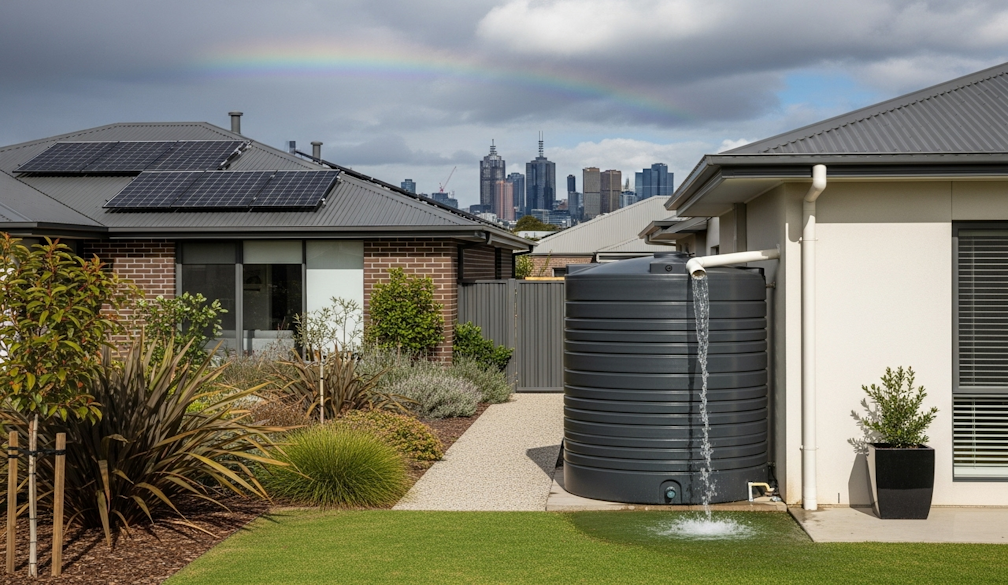Cabinet papers 1994-95: Keating's climate policy grapples sound eerily familiar
- Written by Marc Hudson, PhD Candidate, Sustainable Consumption Institute, University of Manchester
A highly publicised international deal on climate change is two years old. Australia’s federal government, under pressure from environmentalists and with a new prime minister at the helm, signs up and quickly ratifies it. However, its emissions reductions actions don’t work, and the government faces a dilemma: strengthen the measures (including perhaps carbon pricing), or keep cooking up voluntary measures, spiced with a dash of creative accounting.
While the paragraph above might just as well describe the present day, it also sums up the situation in 1994, when Paul Keating’s government was wrestling with Australia’s climate policy. The period is better remembered for angry timber industry workers blockading Parliament, but there were also important battles over carbon pricing and Australia’s international negotiating position.
Cabinet papers from 1994 and 1995, released today by the National Archives of Australia, show how Keating’s cabinet fought an internal civil war over how to respond to climate change, while working hard to protect Australia’s fossil fuel exports.
Read more: It’s 30 years since scientists first warned of climate threats to Australia
International pressure building
Two years previously, in 1992, Australia’s environment minister Ros Kelly had enthusiastically signed up to the new United Nations Framework Convention on Climate Change (UNFCCC) at the Rio Earth Summit. Australia’s willingness to support targets and timetables for emissions reductions (something the United States ultimately vetoed) gave it credibility.
Australia used this credibility to propound a “fossil fuel clause,” which made the now-familiar argument that:
…economies that are highly dependent on income generated from the production, processing and export, and/or consumption of fossil fuels and associated energy-intensive products and/or the use of fossil fuels … have serious difficulties in switching to alternatives.
The cabinet papers released today reveal that defending this clause was a major preoccupation of the government of the day.
In early 1994 Ros Kelly’s political career was brought low by the “sports rorts” affair. She was briefly replaced by Graham Richardson, and then the highly respected John Faulkner.
By this time, all climate eyes were on the first UNFCCC summit, to be held in Berlin in March-April 1995. As an August 1994 cabinet memo noted:
…international pressure is mounting to strengthen the Convention’s emission reduction commitments,
and
…Australia’s measures will fall short of reaching greenhouse gas emission targets and that Australia’s greenhouse performance is likely to compare unfavourably with that of most other OECD countries.
This was a reference to the 1992 National Greenhouse Response Strategy, which was already being shown to be toothless, with state governments approving new coal-fired power stations and renewable energy ignored. Environmentalists wanted more mandatory action; business wanted to keep everything voluntary. After a roundtable hosted by Keating in June, cabinet debated climate change in August.
The political calculations involved are evident in the official record, which states:
[Australia’s] ability to influence international negotiations away from unqualified, binding uniform emissions commitments towards approaches that better reflect Australia’s interests will be inhibited by a relatively poor domestic greenhouse response.
And what are Australia’s national interests? It won’t surprise you to learn that the government worried that:
…action by the international community could have a major impact on Australia’s energy sector and on the economy in general, by changing the nature and pattern of domestic energy use and/or by changing the world market for energy for Australian exporters.
Cabinet pondered finding international allies – such as Sweden, the Netherlands, Denmark, Switzerland and New Zealand – for the get-out-of-jail idea of “burden sharing”, which would allow countries to finesse their climate commitments by funding emissions reductions elsewhere.
Cabinet also canvassed the possibility of adopting either a proactive or reactive stance, or even withdrawing from the UN climate negotiations altogether. That last option – one that in essence would be adopted by John Howard, at least after George Bush opened up that space in 2001 by withdrawing from Kyoto – was seen as too risky. While the UNFCCC didn’t contain provisions for banning imports from recalcitrant countries, nevertheless:
As a major exporter of energy and energy intensive products, Australia would need to be involved in the negotiations to guard against the possibility of this occurring.
Carbon tax?
Faulkner had already flagged that he would bring a proposal to December 1994’s cabinet meeting, possibly including a small carbon tax – something the Greens, Democrats and Australian Conservation Foundation were all pushing for.
His opponents were ready, with a two-pronged approach. First, they produced economic modelling (with, it later emerged, significant help from fossil fuel companies), which warned that “to stabilise emissions at 1988 levels by 2000, taxes per tonne of CO₂ would need to be around US$192 for Australia and US$24 for the OECD.
So far, so frightening. But given that decisions reached at the Berlin summit might have consequences for Australia’s prized coal exports, some sort of response was necessary. Fortunately, the Department of Primary Industry and Energy had prepared a document, called Response to Greenhouse Challenge "in consultation with key industry organisations” such as the Business Council of Australia. This had provided a “basis for discussions with industry and incorporates the key principles that industry wants included in the scheme”.
The carbon tax decision was deferred, and ultimately after a series of meetings in February 1995, Faulkner was forced to concede defeat. A purely voluntary scheme – the “Greenhouse Challenge” – was agreed, with industry signing on to what was essentially a reboot of the demonstrably ineffective National Greenhouse Response Strategy.
The Berlin meeting did lead to a call for binding emissions cuts for developed countries, and Australia signed on, albeit grudgingly. By the end of the year, the same industry-funded modelling was used to produce a glossy report which argued that Australia deserved special consideration because of the makeup of its economy. Australian diplomats would use this argument as a basis of their lobbying all the way through to the 1997 Kyoto climate summit.
In one of history’s ironies, on the same day that this report was released – December 1, 1995 – Keating’s cabinet discussed “the development of a more comprehensive effort in greenhouse science”, noting that:
Climate change is capable of impacting severely on coastal infrastructure, living marine resources and coastal ecosystems such as reefs. The Australian regional oceans strongly influence global climate, and Australia is vulnerable to oceanic changes affecting rainfall and possibly the incidence of tropical cyclones.
A look at 2017’s weather tells you they may have been onto something there.
Read more: It’s ten years since Kevin Rudd’s ‘great moral challenge’, and we have failed it
The ominous parallels
As I pointed out in last year’s cabinet records article, “when it comes to climate policy, there are no real secrets worthy of the name. We have always known that the Australian state quickly retreated from its already hedged promise to take action, and told us all along that this was because we had a lot of coal”.
Reading these documents is a bit like yelling at a person in a horror movie not to open the door behind which the killer lurks. You know it is futile, but you just can’t help yourself. The December 1994 cabinet minutes contain sentences like this:
Greenhouse is expected to generate future commercial opportunities for Australia with increased export of renewable energy technology e.g. photovoltaic, wind and mini-hydro technology, especially in the Asia-Pacific Region [to] support renewables.
At yet, several governments later, we’re stuck having the same debates while standing by and letting other countries embrace those exact opportunities.
Marc Hudson does not work for, consult, own shares in or receive funding from any company or organisation that would benefit from this article, and has disclosed no relevant affiliations beyond their academic appointment.
Authors: Marc Hudson, PhD Candidate, Sustainable Consumption Institute, University of Manchester





















